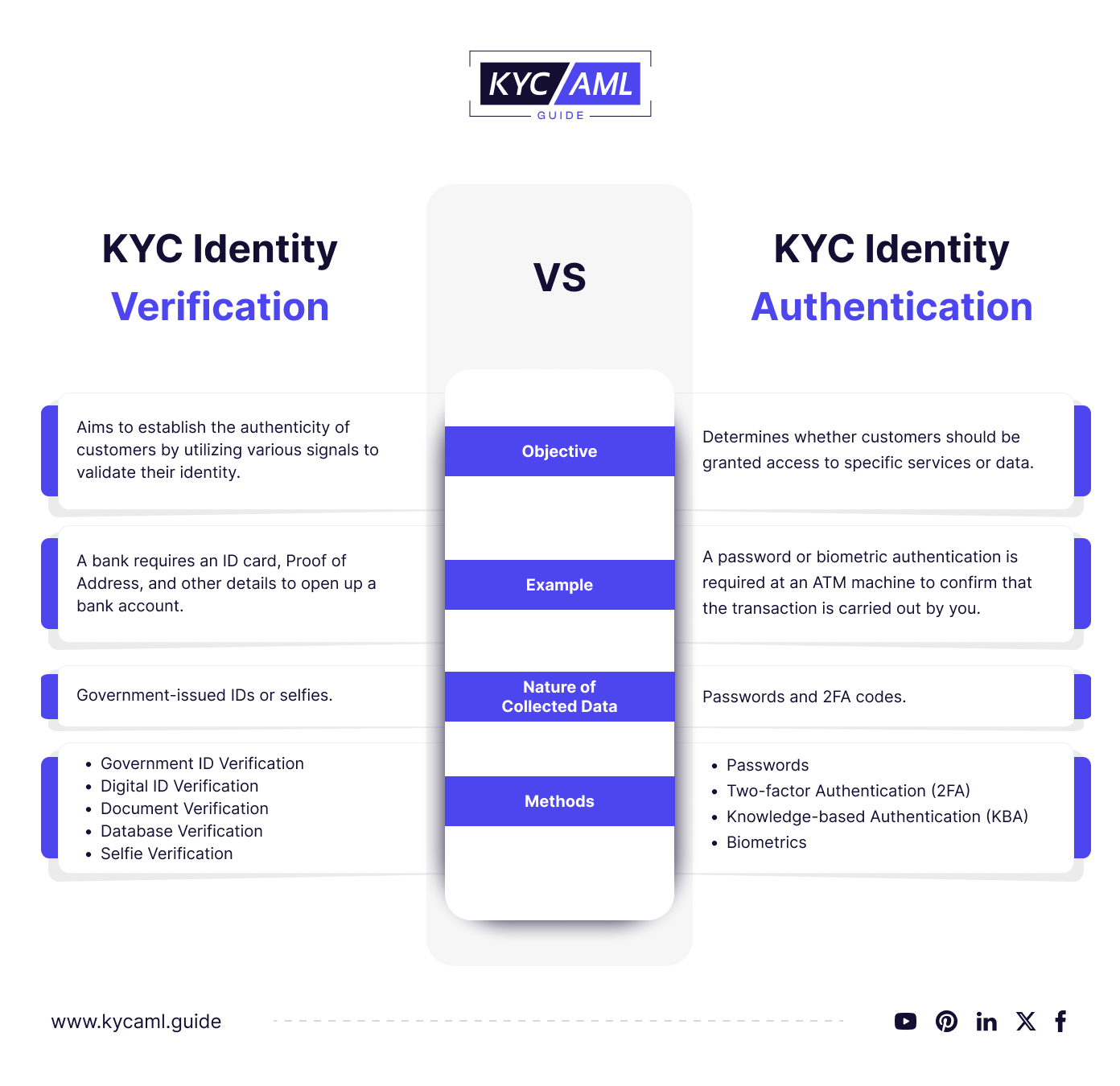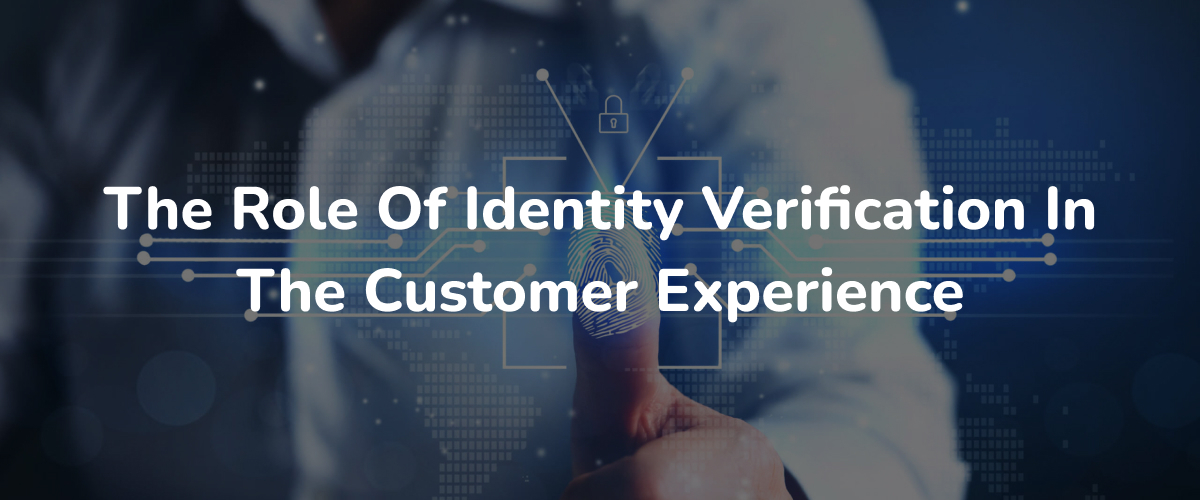The Role Of Identity Verification In The Customer Experience
Digital identity services offer an easy-to-follow process for consumers looking for a seamless onboarding process. Organizations can streamline the excellent customer experience by quickly creating a customer ID. Identity verification builds trust, which is essential and leads to a better customer experience. According to statistics, global spending on identity verification will reach $16.7 billion by 2026. In 2021, identity verifications doubled from 45 billion to 92 billion.
What Is KYC Identity Verification?
Identity is the characteristics that define individuals and help distinguish them from others. These can be names, dates of birth, addresses, or even biometrics identity verification systems such as fingerprints and facial features. In the public sector, identity verification and authentication are required for services such as issuing a passport or driver’s license, validating voter registration, or granting access to a secure area.
On the other hand, private companies use identity verification to protect customers, businesses, and data against fraud and identity theft. For example, before making a transaction or opening a new account, banks and other financial institutions require customers to undergo an identity verification process.
Importance Of Identity Verification
KYC Identity verification is a critical tool for protecting personal and financial information and is an integral part of modern life. Identity verification services help build trust and prevent identity risks and fraud among individuals, organizations, and online platforms. Customer identity verification ensures that the people receiving your services are who they say they are, protecting your business and customers. However, identifying customer identities presents many challenges due to the increasing sophistication of cyberattacks, and the focus is shifting towards data security.
The UK ID and Fraud Report 2023 found that 32% of UK consumers considered leaving a new account due to confusing identity and security checks. With multi-layered ID confirmation, document verification, analysis of personally identifiable information (PII), and different checks, it can be done quickly and accurately using automated AI identity verification. It reduces abandonment rates and improves the experience of online customers.
Difference Between Identity Verification and Authentication

Benefits Of Identity Verification Process For Customers
As most personal and professional activities occur on the Internet, adequate control is essential for security. Identity verification KYC improves the quality of customer experience by:
Fast-Tracing Processes
Opening a bank account or setting up health insurance can take a long time. This isn’t very easy because customers cannot move or travel freely. Customer identity verification technology allows us to do this kind of work from the comfort of our homes.
Build Trust
At first, verification requirements may seem awkward, but they build greater trust between customers and service providers in the long run. The customer is assured that before approving any request, the company will check them, verify their identity, and use multi-factor authentication.
Also Read – Is A Mortgage Broker Needed To Buy A Home?
Improve Engagement
Due to security and privacy concerns, many UK consumers are abandoning the online account opening process. In other words, security and privacy breaches are the leading causes of customer disengagement that can be solved by verifying the customer’s identity.
Automated Actions
Actions often require the customer to verify their identity, such as issuing a refund or initiating a product return. Robust identity verification and authentication support this through AI identity verification without human intervention, such as SMS OTP or voice biometrics.
Personalized Service
Personalization is the magic wand for exceptional customer experience, and KYC is the magic that makes it happen. Knowing your customers allows you to tailor your products, services, and interactions to their interests. KYC data enables effective customer segmentation, identifying different needs, behaviors, and purchasing patterns. With this knowledge, you can provide personalized advice, promotion, and customer support.
Also Read: Strategies To Safeguard Your Business From Online Fraud
How KYC Tools Can Enhance Customer Experience?
KYC Identity Verification Tools are critical in enhancing the customer experience using a financial service. Mainly, it is related to customer onboarding, where users today expect a KYC Process to be seamless and user-friendly. Selfie KYC, One Touch KYC, and other forms of Remote KYC through smartphones are trending ways to make the User Journey seamless.
For this purpose, KYC Tools need to work on the following aspects and features of their KYC Solution:
| Liveness Detection | KYC Tools must enable robust liveness detection features through AI-based biometric Identity Verification. This will help in detecting Identity Spoofing and Morphing attempts earlier. |
| Lowest FAR and FRR | KYC Tools must consider having the lowest possible False Acceptance and False Rejection Rates. This will increase the accuracy and authenticity of the KYC Solution and will be trusted more by fintech and customers. |
| Improved User Interface | KYC Tools must develop their application’s interface to make it convenient for anyone to use and easy to understand. A complex user interface can make the customer lose interest in overall services and become churn. |
| Document Testing | KYC Solutions must also have a Fake and Original Document Testing mechanism to ensure added layers against fraud and spoofing through identity documents. This will require the solution to have a vast database of identities and a ‘Forgery Detection System’ in the algorithm of Identity Detection. |
KYC AML Guide is a research-based consulting that excels in offering KYC technology buying and KYC vendor analysis services to businesses to find the right KYC identity solutions as per their business requirements. KYC AML Guide is a research-based consulting that excels in offering KYC technology buying and KYC vendor analysis services to businesses to find the right KYC identity solutions as per their business requirements.
Bottom Line
As we move into the advanced age, KYC Identity verification will probably become more incorporated into how we carry on with work and communicate with different associations and services. By blending traditional and present-day identity verification technologies, businesses can guarantee an accurate and secure customer experience without forfeiting convenience.

















